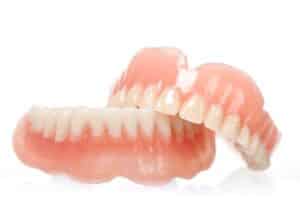Welcome to our guide on denture repair and care! Dentures can be a great way to restore your smile if you’ve lost some or all of your natural teeth. Unfortunately, dentures can break, but when they do, it doesn’t mean the end of your dentures! In this article, we’ll show you five simple steps on how to fix broken dentures at home, so you can get your dentures back in action as soon as possible. We’ll also provide some essential denture care tips and answer some frequently asked questions about denture repair and maintenance. Let’s get started!
Preparing Your Broken Dentures for Repair
Before you can begin repairing your dentures, it’s important to properly prepare them. Here are a few steps you should take:
Remove denture pieces from the mouth.
If possible, try to remove any broken denture pieces still in your mouth using your hands or a pair of tweezers. Be careful not to cut yourself or damage the dentures further.
Rinse dentures with cold water.
Once denture pieces have been removed from your mouth, rinse them off with cold water before beginning any repairs. This will help remove food particles, saliva, and other debris that can interfere with denture repair.
Gather denture repair supplies.
Before you can start repairing dentures, you’ll need to gather all of the necessary supplies. This includes denture adhesive, denture repair material, and denture brush or toothbrush. You may also want to have a pair of gloves handy for easy clean-up.
Repairing Your Denture
Now that your dentures are prepared and you have all the necessary denture repair supplies, it’s time to fix your dentures.
Apply denture adhesive.
Using a denture brush or toothbrush, apply denture adhesive to the broken pieces of dentures. This will help them stick together and make the denture stronger.
Secure denture pieces together.
Carefully press the denture pieces together and hold them in place for a few seconds. Allow the dentures to set for a few minutes, then check that they are securely attached. Repeat this process until the dentures are firmly held together.
Apply denture repair material.
Next, apply denture repair material to the dentures. This will reinforce the dentures and prevent them from breaking again in the future. Allow the denture repair material to dry before moving on to the next step.
Caring for Your Denture
Once you have repaired your denture, it’s important to properly care for it. Here are a few denture care tips that can help:
Soak dentures.
Before wearing dentures each day, you should soak them in denture cleansing solution or warm water for at least 15 minutes. This will help remove food particles and plaque that could cause dentures to break down or become stained.
Clean dentures daily.
Regularly clean dentures with a denture cleanser and a denture brush or toothbrush. Be sure to brush all surfaces of the dentures, including any metal clasps. This will help prevent plaque buildup and keep dentures in top condition.
Keep dentures moist.
Dentures should be kept moist when not in use, as this will help them retain their shape. Store dentures in a denture-soaking solution or warm water to avoid warping them and causing further damage.
Conclusion:
Fixing dentures at home is possible if the damage is minimal. If dentures are too badly damaged, it’s best to visit your dentist for a professional denture repair. With the right denture care tips and supplies, you can help keep dentures in great condition for many years to come.
FAQs
Dentures usually last 5-8 years, depending on how well they are cared for and how often they need to be repaired or replaced.
The cost of denture repair will depend on the extent of damage and the type of material used to fix dentures. Generally speaking, denture repair is not overly expensive and can help extend the life of dentures.
You may notice that dentures don’t fit as well as they used to or that they are cracked or chipped in places. If dentures become loose or uncomfortable, it’s likely they need to be repaired.





